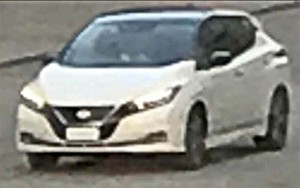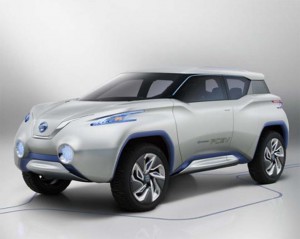With the Chinese government pressing the auto industry to shift to electrified vehicles, a growing number of automakers are launching new ventures specifically to produce battery-electric models. To that list you can now add the Renault-Nissan Alliance and its Chinese partner, Dongfeng Motor Corp.
They plan to create a new joint venture, eGT New Energy Automotive Co., Ltd., that will develop an entirely new battery-electric vehicle which, according to a statement by the partners, will feature “intelligent interconnectivity.” Production is set to begin at the Dongfeng plant in Shiyan in 2019.
“The establishment of the new joint venture with Dongfeng confirms our common commitment to develop competitive electric vehicles for the Chinese market,” said Carlos Ghosn, chairman and chief executive officer of the Renault-Nissan Alliance.
One of the goals of the eGT venture is to “strengthen our global electric vehicle leadership position,” according to Ghosn. Since the Japanese side of the alliance launched its first pure battery-electric vehicle, the Nissan Leaf, in 2010 the partnership has been the global leader in BEV sales. But it is facing increasingly tough competition, especially from Tesla, which expects to boost sales to as much as 500,000 in 2018 with the launch of its new Model 3 battery sedan.
(New Ford JV will produce battery-cars for China. Click Here for more.)
For its part, Nissan recently unveiled a second-generation version of the Leaf which will now roughly double range to around 200 miles per charge with the larger of its optional battery packs.
The French side of the alliance also has a range of battery-electric models, as does the third leg of its automotive stool, Nissan last year taking a controlling stake in the long-troubled Japanese automaker Mitsubishi Motors.
The eGT partnership expands the ties between the Renault-Nissan Alliance and Chinese government-owned automaker Dongfeng, which produces a number of different models, such as the Nissan Kicks, for sale in the Chinese market.
Under Chinese law, foreign manufacturers must partner with local manufacturers in order to produce vehicles in the country, the world’s largest automotive market. But, as with so many other Chinese ventures, the partners are anything but monogamous, Dongfeng also producing vehicles for such other foreign brands as Kia. And the Chinese company owns a stake in Renault’s primary French rival, PSA Peugeot Citroen.
New Chinese rules are making for even more of these strange bedfellow relationships. The country’s regulators are putting increasing pressure on the industry to shift to electrified vehicles in a bid to address China’s endemic air pollution problems. And, at the local level, more than a dozen cities, including Shanghai and Beijing, now have strict limits on the number of new vehicles that can be registered each month. But those restrictions are waived for qualifying battery-cars.
While electrified vehicles – including hybrids, plug-ins and battery-electric models – accounted for less than 2% of the total Chinese market last year, sales are rising rapidly, growing 50% from 2015 to 2016. Last year’s total of 336,000 plug-based models was more than double the U.S. total of 159,620.
Industry leaders have been trying to slow down the government’s push for electrification, but Beijing regulators have signaled they intend to continue to move forward. That has led to a surge in new battery-car projects.
(Automakers plead with China to delay EV mandates. For the story, Click Here.)
The new eGT joint venture was announced barely a week after Ford Motor Co. announced a similar deal with Anhui Zotye Automobile Co. Ltd., a maker of zero-emission all-electric vehicles in China. For its part, Ford expects the market for “new energy vehicles,” or NEVs, in China to grow to 6 million units per year by 2025, of which approximately 4 million vehicles will be all-electric.
“Electric vehicles will be a big part of the future in China and Ford wants to lead in delivering great solutions to customers,” said Peter Fleet, Ford group vice president and president, Ford Asia Pacific.
Other makers planning to get into the Chinese EV market include Daimler AG, Volkswagen and General Motors.
(For more on the 2018, Gen-2 Nissan Leaf, Click Here.)



